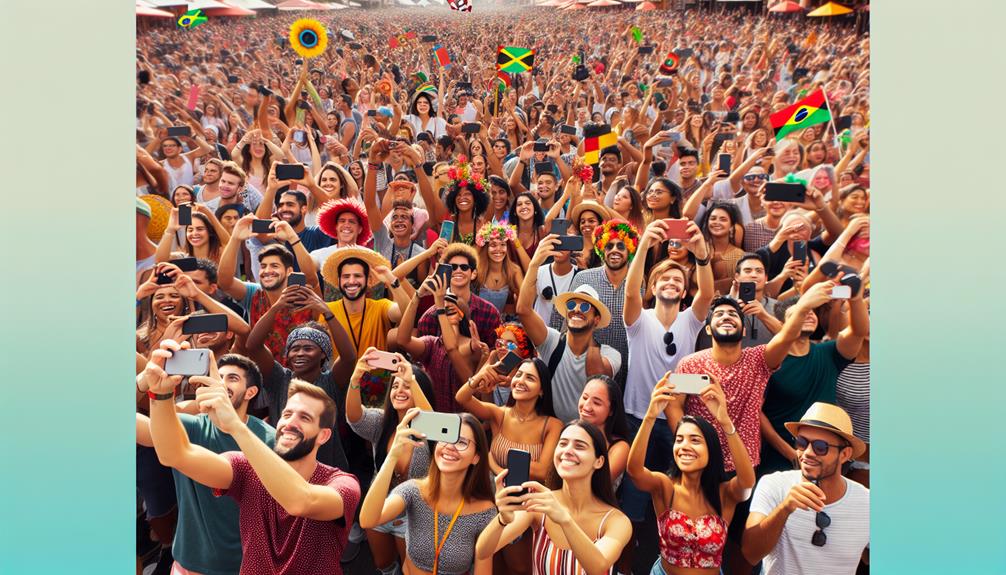

For local businesses seeking to harness the power of social media, crafting a meticulously planned event calendar is essential. It not only facilitates a structured approach to content sharing, ensuring alignment with overarching marketing goals, but also helps maintain a rhythmic consistency vital for building a loyal community. By tailoring content to the distinct demographics and interests of your target audience, leveraging insights from social media analytics, and selecting platforms that resonate with your community’s preferences, businesses can greatly amplify their online engagement. Strategic planning of promotions around key events, capitalizing on seasonal trends, and collaborating with local influencers for a wider reach are pivotal elements. Moreover, optimizing content creation and scheduling strategies to include local keywords, geotags, and user-generated content can bolster local engagement and visibility.
As we venture further, we uncover advanced techniques to analyze performance, improve engagement strategies, and ultimately, raise the local business’s social media presence to new heights.
In today’s fast-paced digital landscape, understanding the intricacies of social media calendars emerges as a pivotal strategy for local businesses aiming to boost their online presence and connect more effectively with their target audience. A social media calendar is not just a tool for planning and scheduling; it’s a detailed blueprint that maps out the what, when, and how of content sharing across various social channels. It meticulously organizes content details, ensuring that every post aligns with the broader marketing goals of a business.
For local businesses, the strategic use of social media calendars facilitates a more structured approach to online engagement. It allows for the planning of content that resonates with the community, schedules posts for maximum visibility, and tracks the effectiveness of different strategies. This level of organization is vital for maintaining consistency across posts, which is key to building a loyal following.
Moreover, content calendars serve as a central hub for organizing creative ideas, managing campaign timelines, and ensuring that all social media activities contribute to the overarching objectives of enhancing visibility and fostering engagement. Essentially, mastering the art of the social media calendar equips local businesses with the ability to fine-tune their digital footprint, tailor their messaging to meet audience expectations, and achieve their marketing goals with precision.
Understanding your target audience is the cornerstone of any successful social media strategy, requiring meticulous analysis of demographics, interests, and behaviors to craft content that resonates deeply with your local community. To achieve this, employing a mix of market research, social media analytics, and direct engagement tactics is essential. These efforts culminate in the creation of buyer personas—semi-fictional representations of your ideal customers that guide the creation of personalized content.
| Strategy Component | How it Elevates Understanding |
|---|---|
| Demographics & Interests | Pinpoint age, gender, and interests for tailored content. |
| Market Research | Uncover needs and preferences through surveys and polls. |
| Social Media Analytics | Gain insights into content preferences and engagement times. |
| Buyer Personas | Craft detailed profiles for targeted, personalized content. |
| Direct Engagement | Use polls, surveys, and DMs to refine audience understanding. |
Selecting the right social media platforms is a pivotal decision for local businesses aiming to connect effectively with their target audience. This choice is fundamental in building a strong social media presence, essential for enhancing community engagement and promoting business events. The process involves a strategic analysis of several key factors, including user activity and engagement levels across various platforms. By understanding where their audience spends most of their time online, local businesses can prioritize these platforms to maximize their reach and impact.
Moreover, evaluating the local competition’s social media success offers insights into potentially fruitful strategies and untapped opportunities. It’s essential for businesses to contemplate not just where they can speak, but where they will be heard. The features and advertising[2] options available on different social platforms should also align with business goals and budget constraints, ensuring an efficient and effective online presence.
Prioritizing platforms that foster high levels of community engagement ensures that content related to business events resonates more deeply with the audience. This strategic selection of social platforms, guided by a clear understanding of audience preferences and competitive landscape, is crucial for local businesses aiming to achieve their marketing objectives and foster a vibrant social media presence.
Carefully aligning promotions with local events and holidays is a pivotal strategy for local businesses aiming to enthrall their community and drive engagement. Tapping into the rhythm of seasonal trends and local festivities not only amplifies visibility but also guarantees that promotions resonate with the community’s current interests and activities. This approach demands a keen eye on community activities, requiring businesses to stay abreast of local happenings and integrate them into their social media event calendars thoughtfully.
Utilizing data analysis from past successful events plays an essential role in shaping future promotions, allowing businesses to refine their strategies based on what has proven to engage their audience effectively. Collaborations with local influencers or businesses for co-promotion opportunities can further extend the reach of these events, creating a synergy that benefits all parties involved. Additionally, implementing robust tracking mechanisms is essential to gauge the impact of these promotions on achieving business objectives, providing valuable insights for continuous improvement.

In the dynamic world of local business marketing[1], mastering the art of content creation and scheduling is essential for staying ahead in the digital landscape, ensuring posts are not only engaging but also timely and relevant to the local audience’s interests. A social media manager plays a pivotal role in crafting a social media content strategy that incorporates local keywords and geotags, which are vital for enhancing visibility among local consumers searching for related events or services.
By utilizing a content calendar, businesses can strategically schedule posts to coincide with peak times when their local audience is most active online. This careful planning also involves incorporating user-generated content, which not only adds authenticity to the social media presence but also fosters community engagement by showcasing real customer[3] experiences.
Furthermore, planning themed content around local holidays or community events can create a sense of connection and relevance with the audience. This approach not only strengthens community ties but also underscores the business’s engagement with local culture and events. Through these strategies, local businesses can effectively utilize their social media platforms to boost visibility, engage with their community, and drive local footfall.
To effectively harness the power of social media for local businesses, tracking and analyzing performance metrics is essential for refining event strategies and ensuring content resonates with the target audience. By leveraging analytics tools, businesses can gain actionable insights that not only improve their social media events but also amplify their overall marketing strategies.
Here are four key steps to track and analyze performance:
After understanding the importance of tracking and analyzing performance metrics, it’s essential for local businesses to focus on creative ways to improve engagement strategies on social media platforms. Engaging with your audience isn’t just about posting regularly; it’s about creating interactive and meaningful experiences that resonate with your followers.
Implementing interactive polls and quizzes can boost engagement by up to 40%, making them a dynamic tool for understanding your audience’s preferences while keeping them entertained.
Moreover, leveraging user-generated content not only increases engagement rates by 28% among local audiences but also builds trust and authenticity around your brand. It’s a demonstration of the power of your community’s voice and a brilliant strategy for fostering deeper connections.
Hosting live Q&A sessions or behind-the-scenes tours can further drive engagement and foster community interaction, offering a glimpse into the heart of your business and promoting transparency.
Collaborating with local influencers or partners aids in target market expansion and boosts engagement by introducing your brand to new audiences in a relatable and authentic manner. Finally, incorporating storytelling elements into your posts can create emotional connections, making your content more memorable and shareable.
When local businesses master these strategies, they not only boost engagement but also cultivate a loyal community around their brand.
To create a social media calendar, analyze platform trends and audience insights. Determine post frequency, content themes, and visual aesthetics. Utilize engagement tactics, review analytics, plan campaigns, select tools, and allocate budget wisely.
A social media calendar should include holiday promotions, trending topics, customer feedback, behind-the-scenes insights, product launches, user-generated content, industry news, team introductions, FAQ sessions, and engagement analytics to strategically boost audience engagement and understanding.
Businesses create editorial calendars for social media to guarantee brand consistency, enrich audience engagement, and vary content. Strategic planning, time management, and performance analysis facilitate trend adaptation, collaborative opportunities, competitor analysis, and platform optimization.
To create a content calendar for clients, begin with client consultation and audience analysis. Set clear goals, select appropriate platforms, and determine content themes. Incorporate engagement metrics, posting frequency, and budget planning, followed by analytics review.
